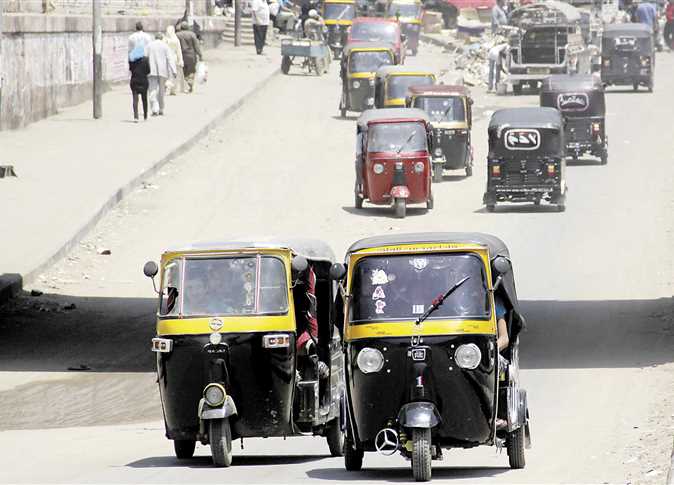With the issue of sexual harassment of women in Egypt garnering much public attention and debate, stories of men facing sexual advances on Cairo’s streets are also surfacing. While there is no data on the frequency of the phenomenon, anecdotes abound.
Rebecca Chiao, cofounder and director of HarassMap, which records and maps instances of sexual harassment in Cairo, explains the lack of data on male harassment victims: “All the studies before assumed that men are the harassers and women are the victims, so they didn’t even ask the question.”
HarassMap, founded in 2009, has received two official accounts from male victims, one who was reportedly harassed by a woman and the other by a man. In addition, male victims of sexual harassment share off-the-record accounts with Chiao and her HarassMap colleagues.
“We have heard a lot of men’s stories on a personal basis since starting our work,” Chiao says. “Though the anecdotal stories can’t be counted as data, the fact that we’re hearing them and the fact that we do have two official reports, indicate to us that there is an unseen problem."
An American student in Egypt who asked to be called Adam and asserted he was in his early 20's, said that young women and girls in groups sometimes vocally flirt with him, but he added, “This is usually in a light, joking manner. I haven’t seen any serious harassment of men by women.”
The sexual harassment men generally face in Cairo seems to be mostly perpetrated by other men.
“It is often Egyptian men, not women, who sexually harass other men,” Adam said, telling of a taxi driver who asked him, “Do you like sex?” before touching his leg and repeating the question.
“I was shocked,” Adam said.
Several male respondents to Al-Masry Al-Youm's request for information on sexual harassment told of similar situations in Cairo taxis.
A 32 year-old American journalist in Cairo studying Arabic told of one driver’s massage proposal: the driver demonstrated on himself that the massage would extend to private areas.
A US-based environmental consultant, 26, said that while he was working in Cairo in 2008, he "had a taxi driver who was rubbing himself… then tried to grab [his] crotch as [he] got out.”
Women are also not the only ones targeted by "phone stalking," another form of harassment.
A 31 year-old journalist working for British and Hong Kong radio said he received constant, unwanted calls after exchanging numbers with someone he met at a party. He said that a friend also received repeated calls after the attendant at a phone store where he bought a SIM card wrote down his number.
“I think that’s a fairly common form of harassment,” he said.
A 36 year-old American journalist in Cairo studying Arabic told of a street encounter with a man who approached him and asked if he liked sex before describing the size of his penis.
“I felt lightly threatened, but I knew that I could get out of it,” the journalist recalled.
Rebecca Chiao of HarassMap says it's necessary to emphasize that sexual harassment affects male and female victims differently.
“Some men who told me their stories felt a lot of fear and trauma from the experience, and some didn’t, whereas almost all the women we hear stories from experience a lot of fear and trauma," she said.
“[Men] do not experience the constant gauntlet of all forms of harassment that women face on a daily basis.”
The journalist who received the massage proposal said, that following the experience, he empathized with women who had shared their stories of sexual harassment with him. Previously, he had joked to his female friends that if he were ever harassed, he would “probably be a little flattered.” After the taxi event, however, he changed his line of thinking, saying, “It wasn’t fun – very weird – unsettling. Now I know what they're talking about.”
The fact that men in Egypt face sexual harassment perpetrated by other men makes the topic at least mildly taboo for some.
Most respondents would only share their stories after anonymity was guaranteed. One Egyptian man who had experienced sexual harassment declined to share his story altogether. An Egyptian psychologist would not comment on the phenomenon because of the homosexual nature of the harassment. And a US-based academic, who has written on sexuality in the Middle East, also declined to comment, concerned that this article would “perpetuate stereotypes of the worst kind.”
Contributing to bringing the issue to light, HarassMap has altered the language it uses to include all potential harassment victims.
“We have changed the way we talk to say things like ‘when people get harassed’ rather than ‘when women get harassed’,” said Chiao.
“I think harassment of men is an overlooked and important issue, and we are adjusting to better include them in our project.”
Over the coming weeks, Al-Masry Al-Youm each Wednesday will feature pieces that dissect the reasons behind sexual harassment, the coping mechanisms for women (and men) in the streets of Cairo and the system that has been set up to tackle this festering issue. Comments and input are appreciated – send us your stories of sexual harassment and information on any organizations or initiatives that combat sexual harassment in Egypt.
Contact the Life & Style section at [email protected] for your input in The Sexual Harassment File.




